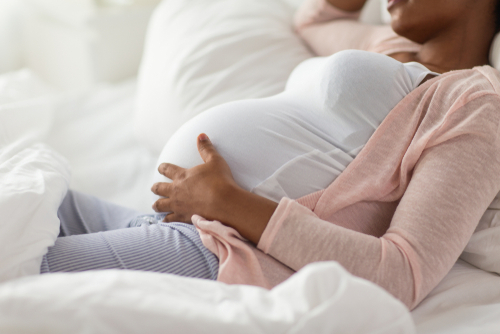You may need to cope with contractions at home until they are strong and regular enough to come to the hospital. At home, it is helpful to alternate periods of rest with periods of activity. Here are some things to try during early labor at home:
Restful activities for labor:
- Take a shower or bath
- Rest on your hands and knees (cat/cow position)
- Lay on your side
- Sit on a birthing ball
Active things to do in labor:
- Go for a walk
- Walk up and down stairs
- Do squats or lunges
- Dance
- Bounce on a birth ball or do circles with your hips while sitting on the ball
Once you are in active labor and in the hospital, contractions can be intense and painful. Here are some things that may help you cope with labor:
- Change positions:
- Swaying or slow dancing with your support person
- Stand and lean over the side of the bed
- Sit backwards on the toilet
- Hands and knees
- Sit on a birthing ball
- Lie down with a peanut ball between your knees
- Take a shower
- Create a calm atmosphere: dim lights, soft music, limited visitors
- Ask your support person to massage your back or legs
- Use counter pressure: have your support person press in the middle of your lower back during contractions
- Hip squeezes: have your support person press your hips together during a contraction
- Make noise: low, open sounds like “ooh” and “ahh” can help keep you relaxed
- Use heat or cold
- Ask your nurse or provider about sterile water papules for back pain
In the hospital we have some medical forms of pain management. The options that we have are:
- An epidural: A small straw called a catheter is placed in your back and medication is given through it. You can have an epidural at any point in labor as long as you can sit still while it is placed. The goal of the epidural is to decrease the pain from contractions and delivery. You may feel numb from the top of your belly to your feet. You cannot get out of bed with an epidural, but you can move around as much as you want in the bed.
IV pain medications: These medications can take the edge off of the pain but will not take away the full sensation of the contractions. Usually, these medications are not given when you are close to delivery because they can make you and your baby sleepy during the birthing process.
